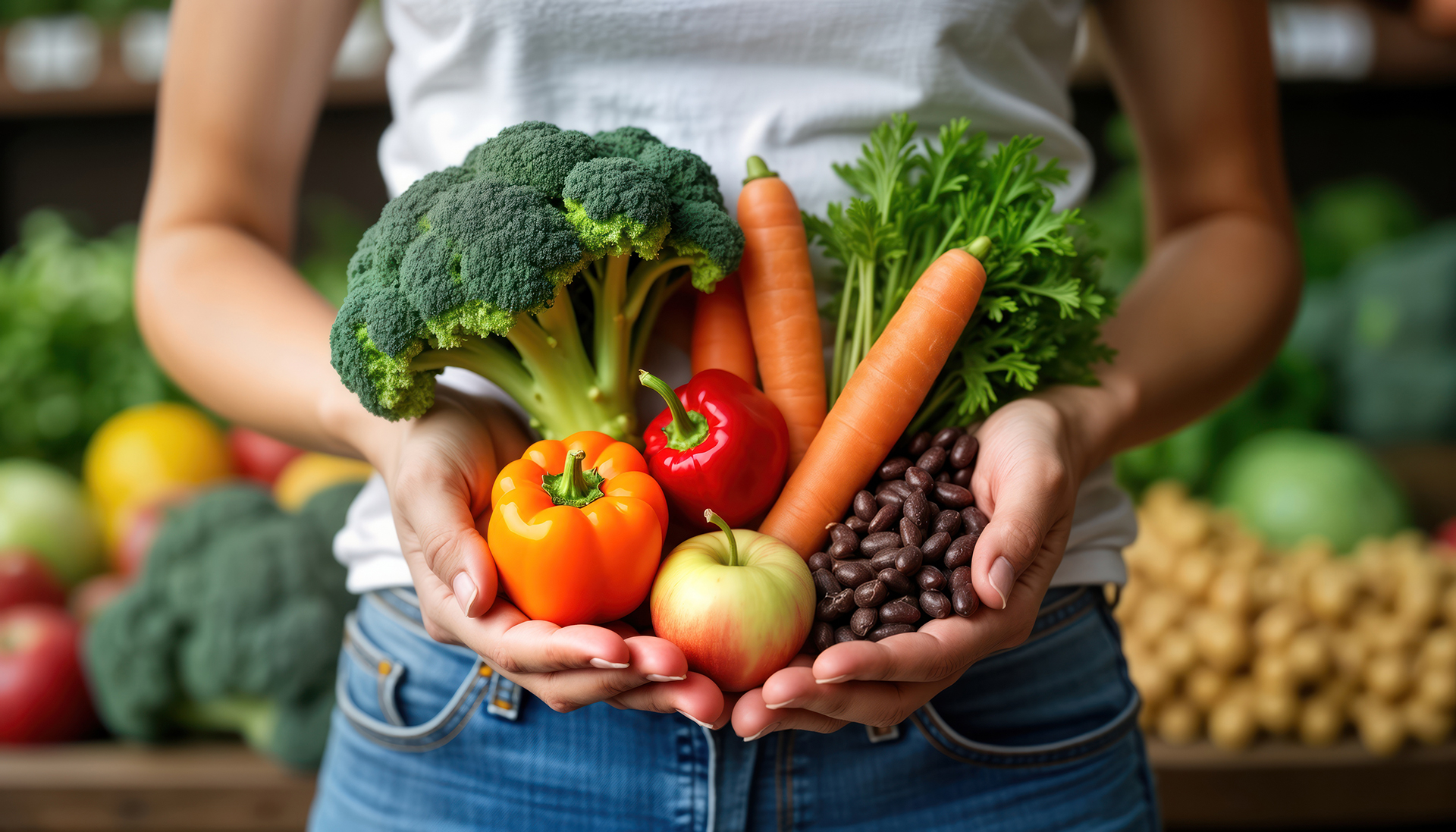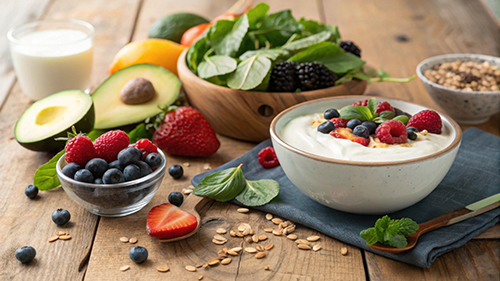BLOG
Health & Wellness
Mindy Curtiss – Certified Health Coach

Gut Health
The Power of 30: How Plant Diversity Heals Your Gut Health
In 2012, researchers from the University of California, San Diego, the Human Food Project, and the University of Chicago launched the American Gut Project to study the human microbiome—our collection of microbes. Their aim was to understand how our diet and lifestyle influence the bacteria living in our bodies. Using “citizen science,” they gathered data from the public to explore what helps maintain a healthy gut microbiome. Their findings, published in mSystems, provide valuable insights into how gut health affects our overall wellness, including digestion, immunity, and even mental health.
Why Diversity Matters
Plant diversity is key to a healthy gut microbiome. Just as a diverse ecosystem thrives, a varied diet supports a broad range of beneficial bacteria. Each plant we eat provides different types of fibers, polyphenols, antioxidants, and nutrients, feeding different bacteria in our gut. This helps maintain a balanced microbiome, essential for digestion, immunity, and even mood regulation.
Plants are rich in two important components for gut health: fiber and prebiotics. Fiber feeds gut bacteria, especially the beneficial ones, helping them thrive and produce short-chain fatty acids (SCFAs) that support gut health. Prebiotics, a type of fiber found in many plants, specifically encourages the growth of good bacteria while inhibiting harmful ones.
Polyphenols and antioxidants in plants also play a vital role. These compounds help protect against oxidative stress and inflammation, reducing the risk of chronic conditions while promoting the growth of beneficial gut bacteria. With each new plant added to your diet, you’re creating an environment where your gut bacteria can thrive.
The Healing Power of Plants
Eating a variety of plants promotes gut healing by balancing bacteria, reducing
inflammation, and improving digestion. Fiber and prebiotics are essential for feeding the beneficial bacteria in your gut, promoting a diverse and resilient microbiome. By incorporating a variety of plant-based foods—fruits, vegetables, legumes, and whole grains—you ensure that your gut has access to a wide range of fibers and nutrients.
Plants also help reduce inflammation. Chronic inflammation in the gut is linked to
conditions like IBS and leaky gut. Phytonutrients and antioxidants in plants, such as polyphenols in berries and flavonoids in citrus, protect gut cells from damage and reduce oxidative stress. Additionally, compounds like curcumin (from turmeric) and gingerol (from ginger) have anti-inflammatory properties that help soothe the gut.
Finally, plants support digestion by providing enzymes that help break down food. Bromelain from pineapple and papain from papaya are just two examples of plant based enzymes that aid in protein digestion, reduce bloating, and promote regular bowel movements.
Practical Tips to Reach 30 Plants
Incorporating 30 plants into your diet each week doesn’t have to be difficult. Here are
some simple tips to get started:
1. Experiment with new vegetables: Try adding new leafy greens, cruciferous vegetables, or root vegetables to your meals each week.
2. Snack on fruits: Keep a variety of fruits on hand for snacks or in smoothies—try different berries, tropical fruits, or apples.
3. Use herbs and spices: Fresh herbs like basil, parsley, or mint can boost flavor and contribute to your plant count.
4. Add legumes and seeds: Beans, lentils, peas, and seeds like chia or flax can easily be added to salads, soups, or smoothies.
5. Try whole grains: Incorporate quinoa, farro, or barley into your meals for added fiber.
To make it fun, take on the “30 Plants in a Week Challenge”—aim to eat 30 different plant-based foods in a week and share your progress on social media.
The Long-Term Benefits
Consuming a variety of plants offers long-term benefits for gut health and overall wellness. A diverse gut microbiome supports better digestion, reduces inflammation, and enhances the immune system. It also contributes to improved mood, mental clarity, and reduced anxiety. The diversity of plants we eat helps balance the microbiome, improving nutrient absorption, reducing gut-related issues like bloating, and promoting a stronger gut lining.
For individuals with digestive conditions like IBS, a plant-rich diet can reduce inflammation and soothe symptoms. Over time, this leads to better gut function and fewer flare-ups.
Start small and gradually add more plant-based foods to your diet. Try to incorporate new vegetables, fruits, herbs, and whole grains into your meals and watch your plant diversity grow. A healthy gut leads to better digestion, reduced inflammation, and improved overall health. The benefits of a balanced microbiome go far beyond gut health—it positively impacts your immune system, mental clarity, and emotional well-being.

Unlock Peace and Happiness with “Moments of Thanks”
Feeling overwhelmed by life’s stresses? Discover a simple yet powerful way to bring peace and happiness into your daily routine. “Moments of Thanks” is a 30-day gratitude journal designed to help you shift your focus from stress to thankfulness.
Key Benefits:
-
-
Reduce Anxiety: Learn to recognize and combat anxiety effectively.
-
Boost Happiness: Gratitude changes your brain chemistry by releasing dopamine and serotonin.
-
Improve Relationships: Forgive and release those who trouble you.
-
Daily Reflection: Start each morning with a list of 10 things you’re thankful for.
-
Mindful Meditation: Spend five minutes in prayerful meditation to set peaceful intentions for the day.
-
